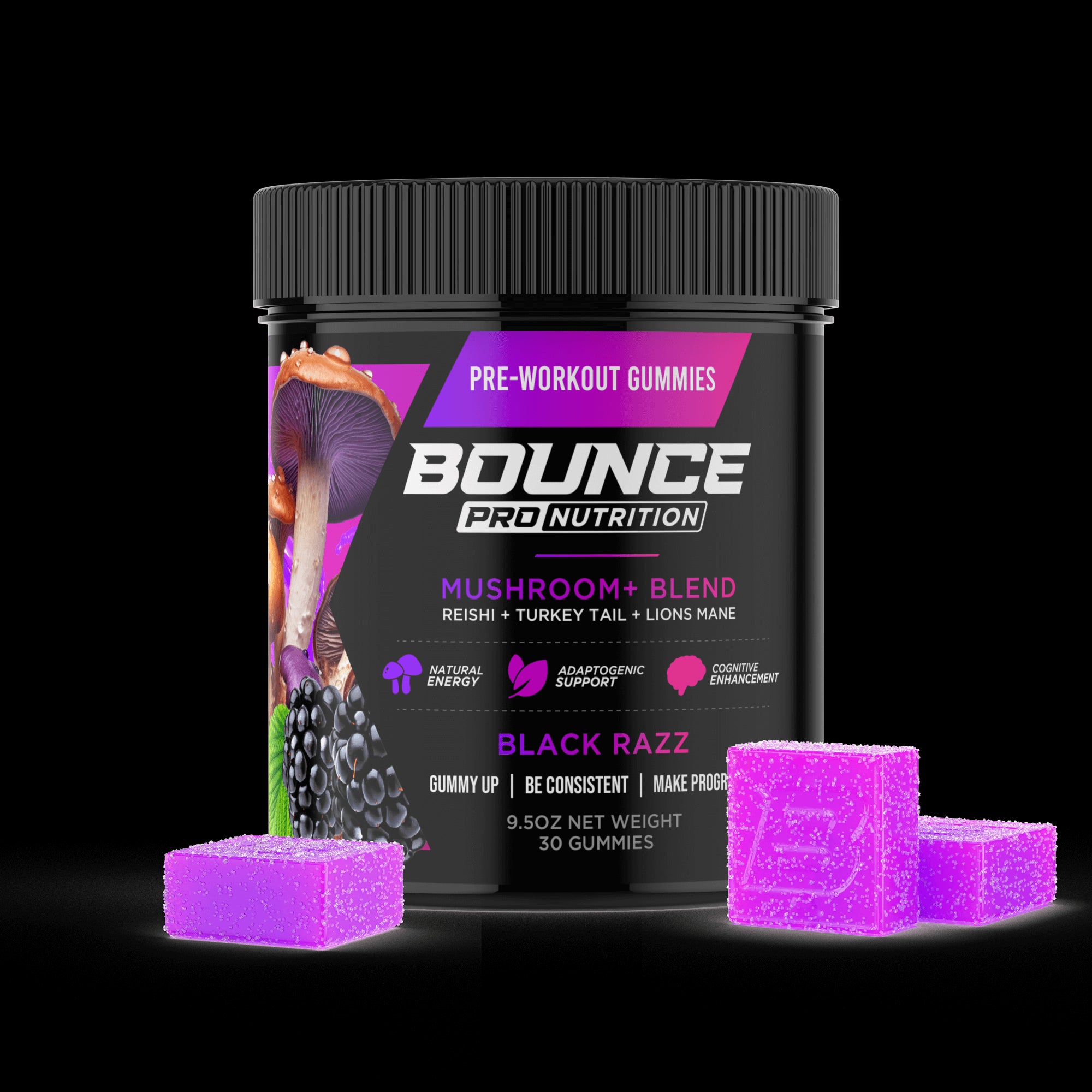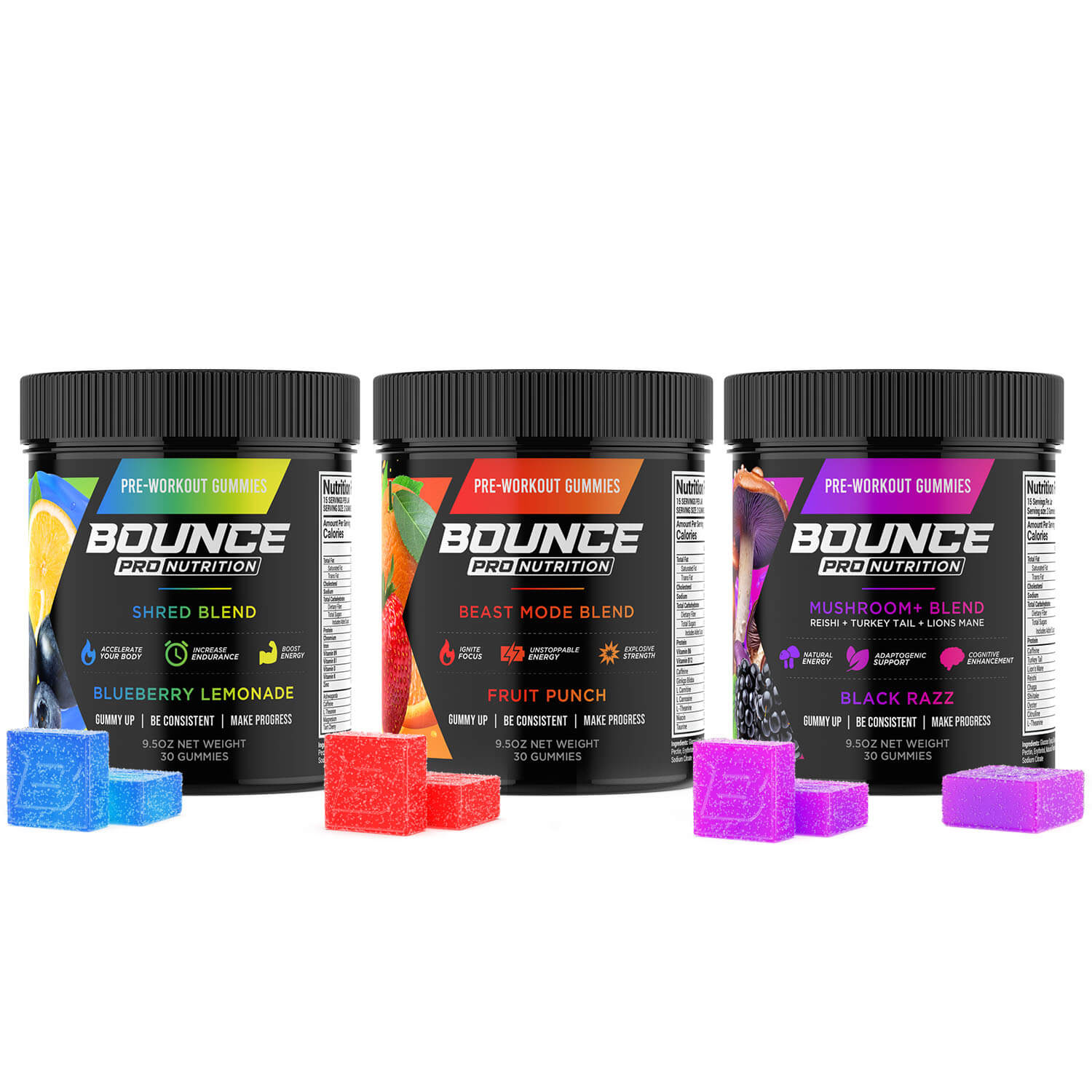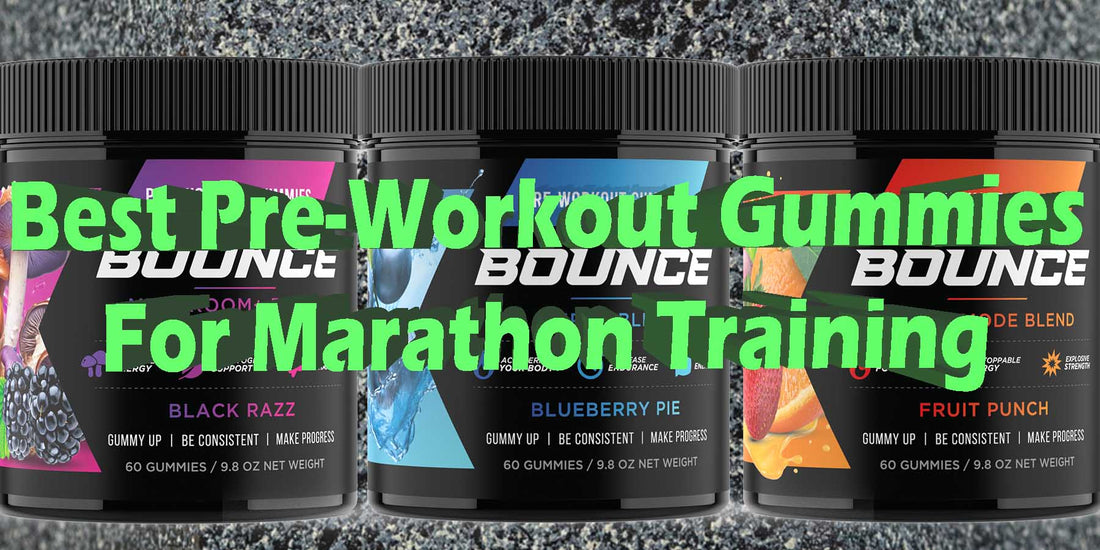Anyone training for a marathon needs some extra help from time to time to push themselves as far as possible. That means finding a natural way to boost energy and stamina, along with muscle strength, to go the extra mile – literally.
And, pre-workout gummies can do just that, with all kinds of ingredients known to improve performance. But, with so many different formulas to choose from, some gummies are obviously going to be better than others.
TO BUY PRE-WORKOUT GUMMIES CLICK HERE
What is Marathon Running?
Marathon running is a long-distance running event with an official distance of 42.195 kilometers (26.219 miles, or 26 miles 385 yards), usually run as a road race. The event was instituted in commemoration of the fabled run of the Greek soldier Pheidippides, a messenger from the Battle of Marathon to Athens, who is said to have run the distance without stopping to deliver news of the Greek victory over the Persians in 490 B.C.
The marathon is a significant physical challenge that tests a runner's endurance, stamina, and mental strength. It is a popular event among both professional and amateur runners, often serving as a benchmark of running achievement.
Many cities around the world host annual marathon events, attracting thousands of participants and spectators. These events often include a festive atmosphere, with music, cheering crowds, and support stations offering water and medical aid.
What Types of Marathons are There?
Marathons come in various forms, each offering unique challenges and experiences that attracts different kinds of runners, from the highly competitive to those seeking adventure or a cause to support. Here are some common types below:
- Road Marathons: The most traditional form, conducted on roads, and usually 42.195 kilometers (26.2 miles) long. Examples include the Boston, London, and New York City Marathons.
- Trail Marathons: These are run on hiking trails and natural terrains. They often feature elevation changes and scenic routes, like the ones in national parks or mountains.
- Ultra Marathons: Any race longer than the traditional marathon distance is considered an ultra marathon. These can range from 50 kilometers to even 100 miles or more, and they can be on road or trail.
- Mountain Marathons: A subset of trail marathons, these are held in mountainous areas and involve significant elevation gain and technical terrain.
- Desert Marathons: These are conducted in desert areas, like the Sahara or Gobi Desert, and pose challenges like extreme heat and sandy terrain.
- City Marathons: Held in major cities, these marathons often attract thousands of participants and are known for their festive atmospheres.
- Charity Marathons: These are organized to raise money for various causes, and participants often run in support of a charity.
- Relay Marathons: In these, a marathon distance is divided among a team of runners, each running a portion of the total distance.
- Indoor Marathons: Held in indoor facilities like gyms or arenas, these are less common and involve running many laps on a short track.
- Virtual Marathons: Gaining popularity, especially post-COVID, these allow participants to run the marathon distance at a location and time of their choosing, often tracked via GPS.
- Night Marathons: These start in the evening or at night, offering a different experience with cooler temperatures and unique atmospheres.
- Adventure Marathons: These include additional elements like obstacles or unusual challenges and are often more about the experience than the running time.
How Does Someone Know If They’re Ready to Run a Marathon?
If you're considering running a marathon and meet most of the criteria below, you might be ready to start training. However, it's always a good idea to consult with a running coach or a fitness professional to get personalized advice and a training plan that suits your individual needs and goals.
So, deciding if you're ready to run a marathon involves assessing several factors:
- Physical Fitness: Marathon running demands a high level of physical fitness. You should have a consistent base of running for at least a year. This base should include running 20-30 miles per week with long runs of at least 10-15 miles.
- Health Check: It's crucial to get a health check-up before committing to marathon training, especially if you’ve any pre-existing health conditions or concerns.
- Training Commitment: Preparing for a marathon typically requires a dedicated training plan that spans several months. You should be able to commit to this plan, which involves gradually increasing your mileage, incorporating long runs, speed work, and possibly cross-training.
- Injury-Free: It's important to be injury-free before starting a marathon training program. Running with an injury can lead to more serious issues.
- Mental Preparedness: Mental stamina is just as important as physical stamina. Being mentally prepared for the challenges of marathon training, including the time commitment and the physical discomfort, is essential.
- Nutrition and Hydration: Understanding and practicing proper nutrition and hydration is vital for successful marathon training and racing.
- Equipment: Having the right equipment, particularly well-fitted running shoes, can make a significant difference in your training and race day performance.
- Race Experience: While not mandatory, having experience in shorter races like 5Ks, 10Ks, or half marathons can be beneficial.
- Recovery and Rest: Recognizing the importance of rest and recovery in your training plan is crucial. Overtraining can lead to injury and burnout.
- Personal Motivation: Yes, having a strong personal motivation or goal for running a marathon can keep you focused and committed throughout the training process.
How Does Someone Train and Actually Run in a Marathon Then?
Training for a marathon typically involves several months of progressive (and even intense) distance running, coupled with proper nutrition and recovery strategies. Some people when starting out join a running group or find a running partner for motivation and support.
Completing a marathon is considered a significant achievement and can be a deeply personal goal for many runners. However, keep in mind though, you need to listen to your body and consult a healthcare professional if you experience pain or discomfort.
Training:
- Start Early: Most training plans range from 12 to 20 weeks. Beginners should opt for longer plans to allow their bodies to adapt gradually.
- Build Mileage Gradually: Increase your weekly mileage over time, with a mix of long runs, short runs, and rest days. Also, consider participating in shorter races as part of your training.
- Incorporate Variety: Include interval training, tempo runs, and long, slow runs to build both speed and endurance.
- Cross-Training: Engage in activities like cycling, swimming, or strength training to improve overall fitness and reduce the risk of injury.
- Rest and Recovery: Allocate rest days to allow your body to recover. This is crucial to prevent injuries.
Nutrition and Hydration:
- Balanced Diet: Focus on a balanced diet rich in carbohydrates, proteins, and fats. Carbohydrates are particularly important for energy.
- Stay Hydrated: Regularly drink water and use long training runs to practice hydration strategies for race day.
- Energy Gels/Drinks: Experiment with energy gels or sports drinks during training to understand what works best for you.
Gear and Equipment:
- Running Shoes: Invest in a good pair of running shoes that suit your gait and provide adequate support.
- Comfortable Clothing: Wear moisture-wicking and comfortable running clothes appropriate for the weather.
Race Day Strategy:
- Pacing: Start at a pace you can maintain. It’s easy to start too fast and burn out early.
- Energy Management: Use energy gels or drinks as practiced during training.
- Stay Hydrated: Drink water or sports drinks at hydration stations.
- Mental Preparation: Stay positive and mentally strong, especially during the more challenging latter miles.
Post-Marathon:
- Cool Down: Walk around after finishing to prevent muscle stiffness.
- Rehydrate and Refuel: Drink fluids and eat a balanced meal.
- Rest: Allow your body ample time to recover before resuming intense physical activity.
What are Pre-Workout Gummies?
Pre-workout gummies are single-serving gummies that contain doses of specific active ingredients associated with exercise performance. The active ingredients that they contain can really differ depending on the company, but overall, their job is to increase energy levels, physical endurance, focus, mood, muscle support, and/or motivation.
Some pre-workout gummies can offer additional benefits, such as increasing certain hormone levels or regulate stress to offer even more benefits. What are the specific ingredients in these gummies, then?
Well, again that can differ depending on the product, but they usually contain some combination of caffeine (for energy), amino acids (for endurance, gains, and strength), and other natural ingredients that can boost motivation, stamina, focus, and other things we look for when we’re trying to get through a grueling running session.
Basically, every pre-workout gummy should contain a carefully balanced blend of these ingredients to give you a general increase in performance, without any side effects or jitters.
How We Picked These Top 3 Gummies
As you may have noticed, there are countless pre-workout gummies on the market these days, each with a very distinctive formula. So, how were we able to narrow it down to just a few? Simple, by being attentive to certain variables that actually matter as it pertains efficacy, safety, quality, and potency of the product, such as:
- How They Taste/Their Texture: Basically, if a gummy doesn’t taste good, you’re not going to want to keep eating it, and so even if it delivers in efficacy, it’s a letdown. The same goes for texture, since some companies make great-tasting gummies, but the texture is just too off-putting.
- Potency: Pre-workout gummies can contain exceptional active ingredients, but if those ingredients aren’t actually present in high enough concentrations, you’re not going to get any kind of noticeable results.
- Active Ingredients: Pre-workout gummies can contain any variety of ingredients that are responsible for the effects of the gummy, like those made to boost energy and those which can improve focus and mood. Some active ingredients are more “proven” and safer than others, with some being tried-and-true for decades, and others being fads that just don’t ultimately deliver.
- Inactive Ingredients: Inactive ingredients are also really important, with natural ingredients always being ideal. We stayed away from pre-workout gummies that contain lots of fillers, artificial additives, and known allergens.
What are the Best Pre-Workout Gummies for Marathon Training?
Now, let’s take a look at our favorite formulas specifically for marathon training, so that you can get started with a new and effective routine. Again, this is all based on the criteria above, so you know you’re getting a top-quality pre-workout product all around. Remember, these are not substitutes for proper running strategies and techniques.
Marathon Running Pre-Workout Gummy Option #3: Bounce Nutrition Best Mode Blend Gummies
Beast Mode gummies have a vegan formula with a delicious fruit punch flavor, and contain caffeine, gingko balboa, theanine, L-carnitine, and Vitamin B12, in high enough concentrations to give you powerful effects that can help you tackle your marathon training regimen on a whole new level.
Designed specifically to produce a significant boost in energy, endurance, and mental stamina, you can’t go wrong with these gummies if you’re a fan of higher-intensity training.
Marathon Running Pre-Workout Gummy Option #2: Bounce Nutrition Shred Blend Gummies
Shred Blend is a vegan formula that tastes just like mouthwatering blueberry pie, and it even offers a fantastic blend of natural plant derivatives known for their powerful effects that directly improve your marathon training game.
L-theanine, caffeine, magnesium, ashwagandha, and tart cherry work together synergistically to give you the energy and concentration you need to get through a training session, with ashwagandha and magnesium offering the added benefits of helping the body respond better to both physical and mental stress.
Marathon Running Pre-Workout Gummy Option #1: Bounce Nutrition Mushroom Blend Gummies
Our enticing Mushroom Blend pre-workout vegan formula supplies a fully unique take on pre-workout supplements. Its amazing Black Razz flavor and succulent texture alone is worth trying, but it’s the blend of active ingredients that really impresses.
Magnesium, caffeine, lion’s mane, cordyceps, and reishi mushrooms come together to provide a carefully selected blend of adaptogens, minerals, and stimulants that improve energy, boost cognition, and lift your mood to help you get through the most demanding workouts, even on days when you’re not feeling up to it.
Bounce Nutrition Pre-Workout Gummies Can Help You Go the Extra Mile!
Training for a marathon is never easy, but our pre-workout gummies can make the process just a little bit easier, thanks to highly effective ingredients that work overtime so that you don’t have to. Explore these Bounce Nutrition Pre-Workout Gummy formulas, as you’ll know you are getting the finest ingredients possible, all of which are proven to be both safe and effective.































